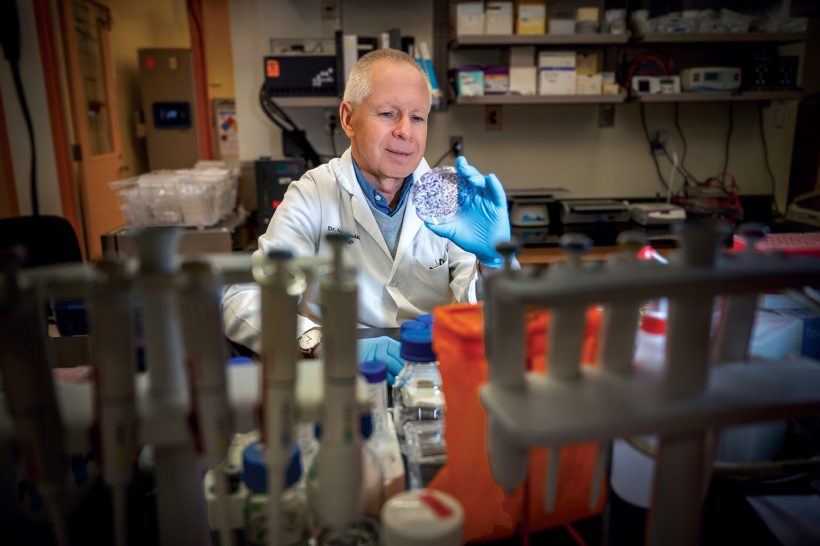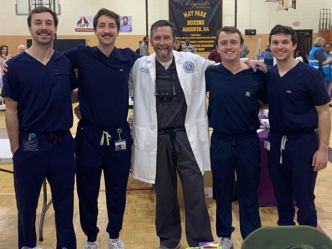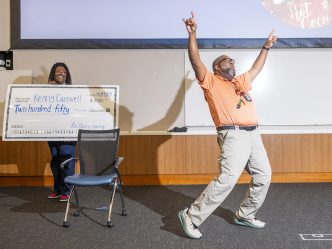Researchers from a team that includes Dr. Andrew Yeudall, Professor and Chair of the Department of Oral Biology at the Dental College of Georgia, have discovered a critical change in a protein that can turn ordinary breast cancer cells into highly aggressive, stem-cell-like threats. This finding could lead to new, more effective treatments for stubborn forms of the disease.
The research, published in the journal eLife, reveals that a single alteration in the vimentin protein can trigger significant changes in breast cancer cells, making them behave like stem cells. Normally, vimentin isn’t found in healthy breast epithelium, but it appears when cells become cancerous. It can help cancer cells change shape and spread throughout the body.
“This research opens new avenues for understanding cancer stem cell behavior,” Yeudall said. “By studying how changes in vimentin impact cells, we were able to identify a key switch that drives these cells toward a more aggressive, stem-like state. This behavior is likely to make them more resistant to treatment and increase the risk of recurrence and spread.”
The study found a connection between the mutated vimentin and a non-coding RNA called XIST. Coding RNA (mRNA) is the messenger that carries the genetic information from DNA to the ribosomes, where it’s used to build proteins, the workhorses of the cell. Non-coding RNAs like XIST interact with other molecules to control gene expression, maintain cellular structure and perform many other functions.
Using a mouse model of breast cancer, the research team discovered that breast cancer cells carrying the mutated vimentin could grow tumors without the need for estrogen, a hormone that drives the growth of many early-stage breast cancers. These tumors expressed high levels of markers for cancer stem cells, suggesting that the mutation drives cells into a stem-like state, making them more difficult to treat and more likely to come back after therapy.
“A single change in vimentin flipped a switch and turned the cells into “triple-negative” breast cancer, a very aggressive form of the disease. Vimentin and XIST might hold the key to designing better therapies for patients with advanced forms of breast cancer,” Yeudall said.
This discovery is significant because it helps scientists understand how less aggressive breast cancer cells can become highly dangerous. It also points to potential new targets for treatments,
“Several aspects of this are translatable,” Yeudall said. “There is technology for whole genome sequencing available in many cancer centers now, allowing for more personalized treatment options. The entire genome of someone’s tumor can be mapped to tailor therapy to the individual.”
Dr. Babak Baban, Associate Dean for Research at the DCG, immediately understood the impact of this research. As an immunologist and researcher, Baban is particularly intrigued by the molecular mechanisms driving this transition and the implications for cancer progression and therapeutic resistance.
“From a broader perspective, this work underscores the importance of interdisciplinary collaboration in advancing our understanding of cancer biology and opens valuable pathways for future research,” Baban said. “I look forward to supporting these efforts at the Dental College of Georgia as we continue to explore the translational potential of these findings in cancer treatment.”
Looking ahead, the research team is committed to further exploring the role of vimentin and its impact on cancer progression. Future studies will focus on whether targeting both vimentin and XIST can improve treatment outcomes for patients with aggressive breast cancer, and how these molecules affect cellular responses to standard and targeted therapies.
The research also highlights the importance of collaboration in scientific discovery. Dr. Yeudall worked closely with Dr. Saima Usman, a then-PhD student with Professor Ahmad Waseem at Queen Mary University of London, who played a critical role in the study. Dr. Yeudall emphasized the value of working with dedicated researchers and collaborators.
“It’s incredibly rewarding to help young scientists who are eager to learn and immersed in a project to develop their skills while, at the same time, advancing our understanding of cancer,” he said.
This study is a significant step forward in cancer research and offers new hope for improving treatments and outcomes for patients battling aggressive breast cancer.
 Augusta University
Augusta University




